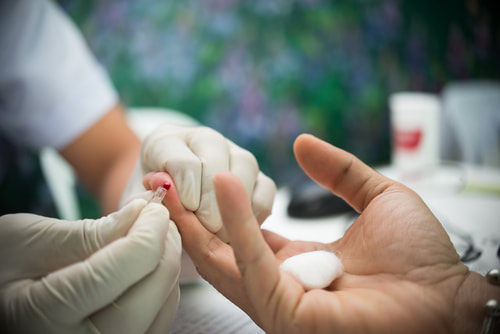Cutting-edge research shows that a basic finger-prick blood test may help detect and diagnose Alzheimer’s disease. The findings were recently presented at the Alzheimer’s Association International Conference 2023 in Amsterdam, Netherlands. Like simple finger-prick testing commonly used for diabetes, this new advancement may soon be the most accurate way to identify Alzheimer’s disease. It would be a medical game-changer should these new blood tests be able to accurately diagnose Alzheimer’s disease.
Alzheimer’s disease, as defined by the Alzheimer’s Association, is a type of brain disease caused by damage to nerve cells (neurons) in the brain. The brain’s neurons are essential to thinking, walking, talking, and all human activity. About 6.5 million people in the United States (age 65 and older) live with Alzheimer’s disease, according to Mayo Clinic statistics. Since this disease worsens over time, early detection is crucial.
These findings are timely and important with the recent U.S. Food and Drug Administration approvals of Alzheimer’s treatments targeting amyloid-beta where confirmation of amyloid buildup and biomarker monitoring are required to receive treatment,” said Maria C. Carrillo, Ph.D., Alzheimer’s Association chief science officer. “Blood tests — once verified and approved — would offer a quick, noninvasive, and cost-effective option.”
Before this new possibility of detection through a finger prick blood test, there’s been no single test to determine if a person is living with Alzheimer’s or another dementia. Presently, says the Alzheimer’s Association, medical experts rely on various diagnostic tools combined with medical history and other information.
These blood tests could be available for both at-home use and in office use at a medical facility.
SOURCE/MORE: AMERIDISABILITY>>


 RSS Feed
RSS Feed